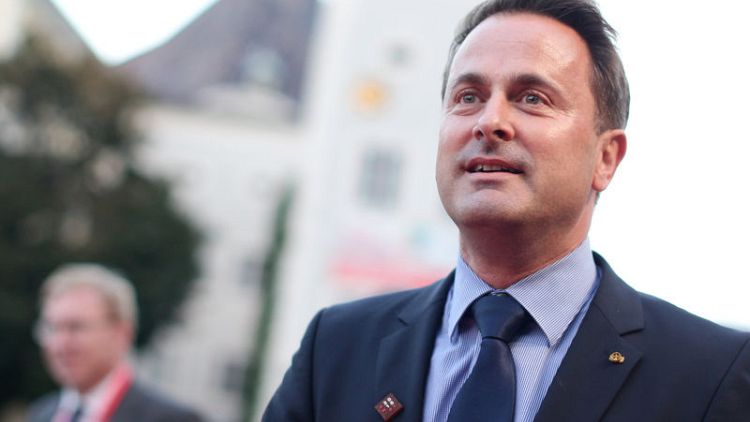By Farah Salhi
LUXEMBOURG (Reuters) - Luxembourg voters delivered an uncertain outcome in an election on Sunday, leaving the liberal-led coalition with just enough seats to stay in government and the traditionally dominant centre-right also capable of returning to power.
Opinion polls had indicated that the Christian Social People's Party (CSV) - which was led for 19 years by EU chief executive Jean-Claude Juncker - would end Xavier Bettel's five years as prime minister of a three-party coalition.
The CSV was on course to be the largest party, but actually lost seats, according to a projection by broadcaster RTL after more than 90 percent of the votes were counted.
Bettel's Democratic Party's result was unchanged, while his allies, the Socialist Workers Party (LSAP), slipped. The day's biggest winners were the third party in government, the Greens.
The upshot is that Bettel's coalition would have a majority of 31 seats in the 60-seat chamber, while the CSV would need to win over his Democratic Party to end its rare spell in opposition.
The CSV was pushed out of government for only the second time since World War Two in a snap election Juncker called in 2013 after a wire-tapping scandal.
Unlike some neighbouring countries, where migration has boosted anti-immigrant parties, the far right has not made inroads in Luxembourg.
However, in 2015 Luxembourgers decisively rejected giving the vote to the 48 percent of the population who are foreigners, mostly from Portugal, France and other EU countries.
Whatever the future government, the foreign policy of the European Union's wealthiest but second-smallest state is unlikely to change much.
To avoid isolation in the EU, Luxembourg has been adapting its economic model, recently ending bank secrecy under pressure from bigger neighbours which have called it a centre for tax avoidance.
Financial services is the largest sector in the Grand Duchy's economy, which was once dominated by steel.
(Reporting by Philip Blenkinsop and Clement Rossignol; editing by David Stamp/Robin Pomeroy)
